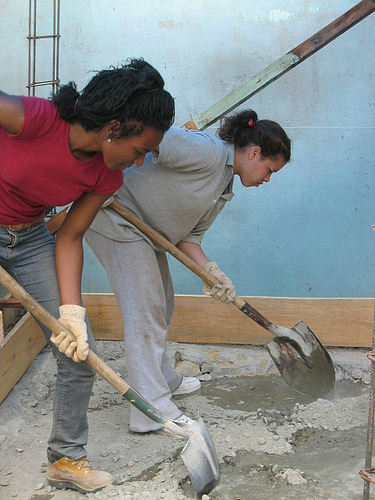
A New York Times article a few months back explored the increasing exodus of high-achieving students from the specializations they studied in college to pursue careers in consulting or investment banking. The article suggested many reasons for the departure - from the impressive salaries offered by high-profit firms, to the simplicity of on-campus recruiting and the well-defined career paths typical of such industries. This problem was evident at my chemical engineering alma mater, as it was at the schools mentioned in the article. However, the author missed some important benefits that an engineer can gain by taking a detour to another field. Engineers who pursue paths outside of the traditional expectations of their departments and professors still have the opportunity to contribute to the fields they studied. Some students will use the problem-solving skills they learned as engineering students to solve nontraditional problems in different fields, often outside of the workplace.
Engineering opportunities outside the job
There are many opportunities to "do engineering" outside of one's job. Perhaps one of the most notable is through Engineers Without Borders (EWB). Volunteers who work on projects through EWB use their skills and experiences to implement sustainable humanitarian projects in developing areas around the world. Chapters of EWB for college students and professionals conduct projects that can last for years and include extensive planning and follow-up trips. These projects bring engineering expertise to places where it might not otherwise be readily available, and are resulting in legacies that benefit many people and communities.

Davesh Shah, an engineering major from the University of Pennsylvania, accepted a job with Citigroup in New York City after graduation. At the same time, he also began working with the EWB New York Professionals Chapter on community-driven development programs worldwide. For a community in Yamabal, El Salvador, Shah helps support the design and implementation of a sustainable water and sanitation project while pursuing his interests in finance. Naturally, projects like these require strategic and philanthropic support. At AIChE's Centennial Celebration in 2008, the Societal Impact Operating Council (SIOC) announced a grants program to help chemical engineering students get involved with such EWB projects. With the grant money, it's now a little bit easier for chemical engineers to do engineering community service work outside of their offices or classrooms. Beyond the structured projects created by EWB, some AIChE leaders are taking their own steps to contribute to the world around them. Alessandra Carreon, chair of AIChE's Puget Sound Local Section, co-founder of the Puget Sound Young Professionals Section, and Leadership in Energy and Environmental Design (LEED)-accredited professional engineer, is an environmental consultant with Environ Corp. in Seattle, WA. Outside of work, Carreon is a forest steward for Seattle's parks, where she leads volunteer groups to help remove invasive species from the park to make room for additional native species.

In addition to this ongoing activity, Carreon recently completed a two-month sabbatical during which she traveled and performed volunteer work related to sustainability. She worked at the Office of Sustainability in Oklahoma City, OK, where she conducted cost/benefit analyses associated with low-impact development and green infrastucture. Moving on to Detroit, MI, she worked with nonprofit organizations to develop sustainability and green-engineering projects as a baseline for the city's economic renewal and growth. Along the way, she established professional connections and diverse experiences that will benefit her career as well as her firm's clients and the nonprofits' stakeholders. And, like many young AIChE members -- Carreon has been extending her border-crossing activities through her volunteer work with AIChE, which has allowed her to further develop leadership and communications skills and has increased her professional exposure. At events like AIChE's Annual Student Conference and the Spring Meeting and Global Congress on Process Safety, the Institute's Young Professionals network conducts workshops on career and workplace preparations, mentors student engineers competing in scholarly competitions, and sponsors special programming and social activities aimed at helping younger chemical engineers to keep their skills and knowledge competitive. Whether or not we work directly in the engineering discipline that we trained for, there are plenty of opportunities to do engineering outside of our workplaces. Academia and industry are not the only options for engineers who want to make a positive difference in the world around them. Maybe instead of fighting the choices the students are making, we should encourage them to pursue their passions in any field. I am confident that they will then be led toward opportunities to make a difference in whatever way they choose.



Comments
Very well said. I think one of the appeals of having a chemical engineering degree background is versatility. The chemical engineering education lays a great foundation and focus on skillset development that are very transferable to other fields and endeavors.
To enrich my engineering life outside of work, I stay active in AIChE and try to keep up on the latest engineering news. I also take every chance I have to inform kids about the merits of an engineering education!